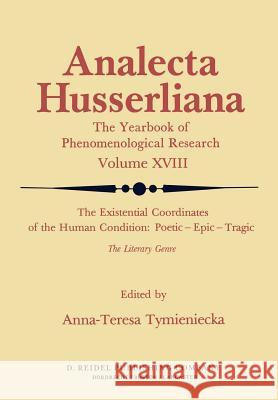The Existential Coordinates of the Human Condition: Poetic -- Epic -- Tragic: The Literary Genre » książka
topmenu
The Existential Coordinates of the Human Condition: Poetic -- Epic -- Tragic: The Literary Genre
ISBN-13: 9789027717023 / Angielski / Twarda / 1984 / 573 str.
The Existential Coordinates of the Human Condition: Poetic -- Epic -- Tragic: The Literary Genre
ISBN-13: 9789027717023 / Angielski / Twarda / 1984 / 573 str.
cena 1328,44
(netto: 1265,18 VAT: 5%)
Najniższa cena z 30 dni: 1272,31
(netto: 1265,18 VAT: 5%)
Najniższa cena z 30 dni: 1272,31
Termin realizacji zamówienia:
ok. 22 dni roboczych
Dostawa w 2026 r.
ok. 22 dni roboczych
Dostawa w 2026 r.
Darmowa dostawa!
Kategorie BISAC:
Wydawca:
Springer
Seria wydawnicza:
Język:
Angielski
ISBN-13:
9789027717023
Rok wydania:
1984
Wydanie:
1984
Numer serii:
000330125
Ilość stron:
573
Waga:
0.98 kg
Wymiary:
23.39 x 15.6 x 3.33
Oprawa:
Twarda
Wolumenów:
01
Dodatkowe informacje:
Bibliografia
Obwoluta
Obwoluta











